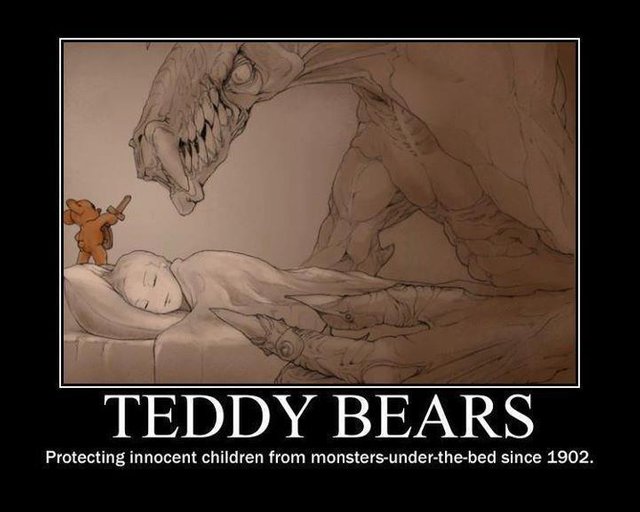Dream research - children in distant worlds
Dream research - children in distant worlds
We all dream. Each night. Not everyone remembers later but is dreaming in all beds. Of course children also dream. But how is it to be judged when children dream in foreign fantasy worlds? Is that a sign of escape? Do these children have stronger fears than others? Did the parents make mistakes? Or is everything quite harmless?
Dr. Brigitte Holzinger deals full-time with dreams. But she is not involved in any lottery, but scientific director of the Institute for Consciousness and Dream Research. When it comes to children's dreams, she advises not to overstate the topic.

Fantasy worlds are creative
When children dream of fantasy worlds, that is not synonymous with flight tendencies or the fear of reality. Children are extremely imaginative, so it's only natural to let them work in their dreams. The daytime experiences are processed by children in a creative way at night. It is about recognizing one's own abilities and getting to know wishes and needs.
The best thing parents can do is talk to their children about dreams. Children have to learn what dreams really are. They want to be taken seriously, especially when it comes to dreams. They need the confirmation that it is perfectly alright to dream in fantasy worlds.

The small castle keeper
When the offspring tells that he dreamed of being a doll or a guard, many parents ring the alarm bells. It can not possibly promise anything good if the child regards himself as a doll, it seems. But Dr. Holzinger disagrees. To dream not only fantasy worlds, but also fantasy figures. Since a little boy is ever a castle guard, a girl mutates at night to the doll. Dreams do not just stimulate imagination and curiosity in children. Also the spirit of adventure is part of it.
Effects of dreams
So everything alright? Is it enough for us to talk to our children when they dream? It's not that easy, because dreams can also have negative effects or indicate problems. Dr. Holzinger, for example, points out that there is a need for action if the child takes the fantasy figures more and more into the reality of the day. If the fantasy figure occupies so much space that threatens a loss of reality, parents should take countermeasures. Another problem is nightmares. Children naturally have more than adults. This is because they not only dream more but also more intensively than adults. Only in the course of time, man learns to deal with his fears, children are still at the very beginning of this path. Dreams, including nightmares, are a means of dealing with fears.
Three ways to dream
In general, a distinction is made between three types of dreaming.
- Everyday and positive dreams: the experience is positively "dreamy". Children with such dreams wake up satisfied.
- Fantastic dreams: These are the dreams in which the children travel on their journey through fantastic worlds. Often the dreams are very detailed and keep the children busy during the day. Sometimes they decide to continue the dream of last night when falling asleep.
- Nightmares: The nightmare of many parents are nightmares of their children. Incidentally, the term itself goes back to a ghostly goblin that sits down next to the child at bedside at night, breathing in unpleasant feelings. Fortunately, there is no goblin on cribs, but the effect of nightmares is still very intense for children. Most of the time they wake up disoriented and cry because the dreamed thing looks very realistic. Nevertheless, even nightmares can help process events. They help children to cope with stress and thus help to better master everyday life.

(C) unknown artist on Pinterest
What to do in case of nightmares?
As nice as that may sound, nightmares help to develop children - if they become too stressful for the little ones, they want to do something about it as a parent. That is understandable and not so difficult.
- Often, a small bulb can help you fall asleep. Many children are afraid of the dark, a small light can work wonders.
- For all children a companion at night is helpful. The teddy and the cuddly animal can do amazing things to keep goblins and ghosts away.
- Children should not just go to bed, evening rituals are included. A little song or the bedtime story lets the kids fall asleep with a calming feeling.
- Even a conversation before falling asleep can be useful. If the child is able to utter what he or she experiences during the day, processing after falling asleep is often no longer necessary.
- Before falling asleep, look quietly under the bed "for safety", if there is no evil hiding there. Especially if your child has recently had nightmares, until a certain age it is not able to distinguish between dream and reality. The certainty that you have checked everything again before, calms the child.
Children's dreams are nothing bad and rarely indicate serious disorders. Let your offspring be a guard or a doll. At least as long as he turns back during the day.

I´m looking forward to your experiences and additions.


Other Dad-Chronicals Stories
Why other children are so important to your child
What age in a child's life is the most beautiful for parents, which is the most exhausting?
A witness to a force of nature - thoughts of a father about the birth of his child
How children experience their environment
Without fear to the doctor - relaxed doctor visits with children
Praise instead of punishment - education through positive reinforcement
"That did not exist with us!" - Children before and today




